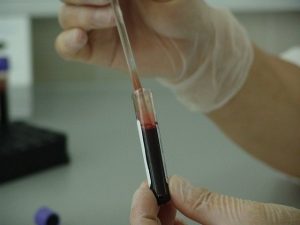If you have a family history of genetic diseases or if your child has a genetic disorder, your doctor may recommend a genetic test. Genetic testing has both risks and benefits and can also provide your family with valuable information about your child’s genetic make-up. It is essential to talk to your doctor or genetic counsellor about all the advantages and disadvantages of testing, as well as the benefits and risks of different types of tests.
This test, called a gene panel, is used when a doctor who ordered to test has information about genes that could be associated with symptoms of a disease. This test is useful if a family member suffers from a genetic disorder and the results may indicate an increased risk of developing the same condition, or if the genetic modification is detected in a suspected disease, the test can be used in conjunction with other genetic tests, such as genetic testing.
Determine Genetic Disease for Early Intervention
 The results can help people understand the disease better and be useful in deciding on treatment. Diagnosis of a particular illness or condition, a positive result will help doctors determine the right treatment and management plan. If you find a gene that could cause genetic disorder in your baby, and the test is positive, you can check with your doctor whether the child is at real risk of developing the disease.
The results can help people understand the disease better and be useful in deciding on treatment. Diagnosis of a particular illness or condition, a positive result will help doctors determine the right treatment and management plan. If you find a gene that could cause genetic disorder in your baby, and the test is positive, you can check with your doctor whether the child is at real risk of developing the disease.
People need to be aware of the importance of clinical genetic testing for their health and well-being. After the genetic test is performed, the doctor will conduct a clinical examination and obtain a detailed family history.
Early Diagnosis and Treatment
Advocates claim that genetic testing on newborns in urgent cases can help diagnose life-threatening childhood illnesses and that it could dramatically increase the number of babies examined at birth, allowing for early diagnosis and treatment. Screening tests for newborns can also help identify diseases at a very early stage, allowing doctors to treat them where possible, and giving parents time to accept the test results and prepare for the future.
Genetic testing could confirm the results of these tests and detect diseases in babies that could be overlooked by heel and stick tests, which can detect some diseases and produce false-positive results in others, causing anxiety and unnecessary follow-up tests. It could also inform parents of conditions that they could pass on to future children.
Bottom Line
Clinical genetic testing provides patients and families with more information about specific genetic conditions. Research and testing involve finding new genes, linking genes and genetic mutations to certain diseases, and determining how these genes work and affect individuals. The outcomes of clinical genetic tests are used to tell someone about their illness so that they can make well-informed decisions about their future. This will help the doctor to identify which genes may be responsible for the disease in question, as well as possible genetic predispositions to it.

